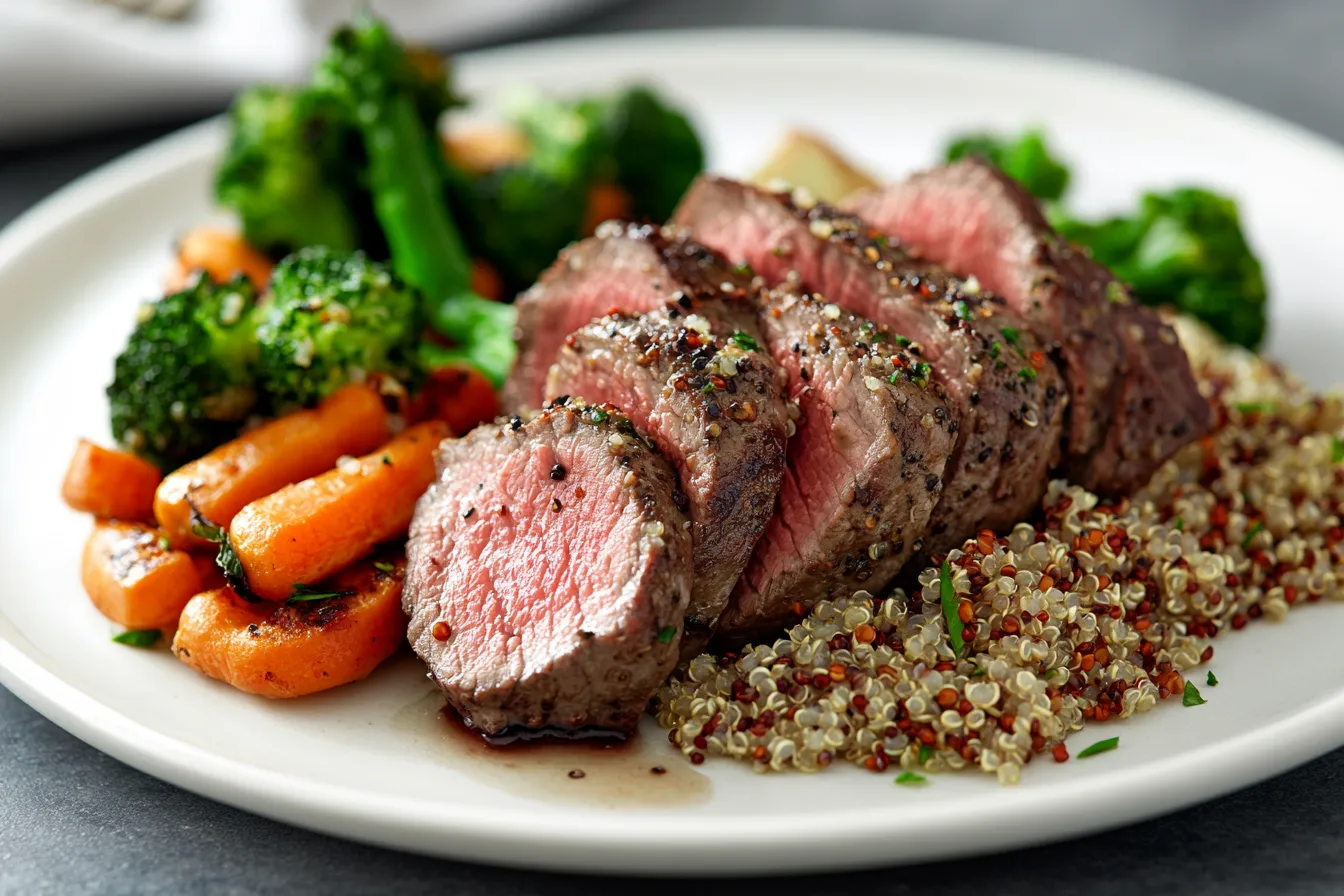Ingredients
Equipment
Method
- Trim the tenderloin: Remove silver skin and excess fat with a sharp knife.
- Season the beef: Rub with olive oil, garlic, salt, pepper, rosemary, and thyme.
- Preheat your oven (or grill) to 425°F (220°C).
- Sear the meat: In a hot skillet, sear all sides for 2–3 minutes to lock in juices.
- Roast the tenderloin: Transfer to the oven and cook until the internal temperature reaches 130°F (medium-rare) or 140°F (medium), about 20–25 minutes.
- Rest the meat: Cover loosely with foil and let it rest for 10 minutes before slicing.
- Slice & serve: Cut into 1-inch medallions and serve with steamed vegetables or whole grains.
Notes
Tenderloin is best served medium-rare for maximum tenderness.
Resting the meat ensures juices redistribute evenly.
Add a wine reduction sauce or herbed butter for a gourmet twist.
For a leaner variation, trim all visible fat before cooking.
